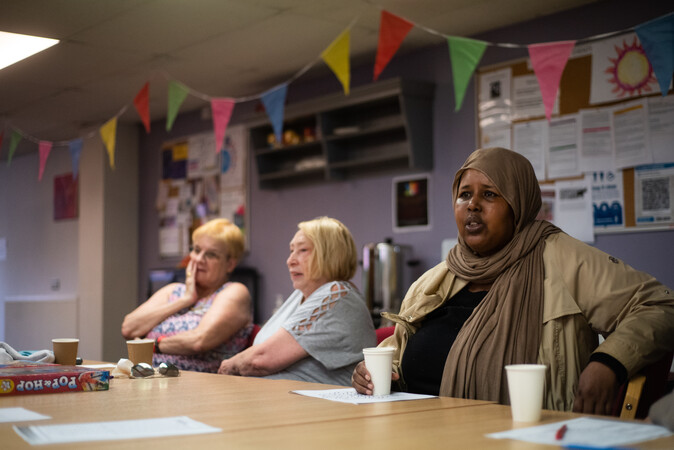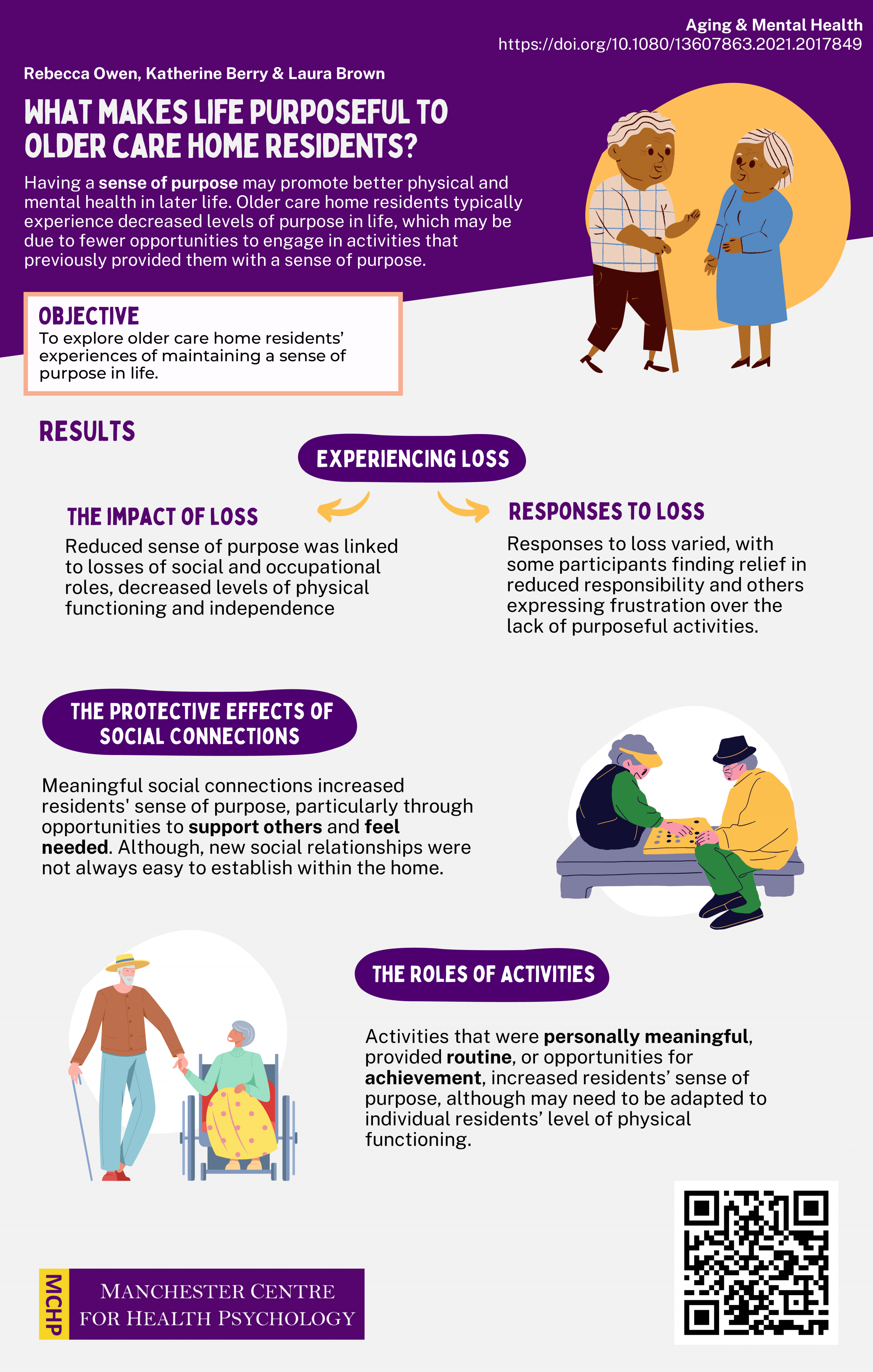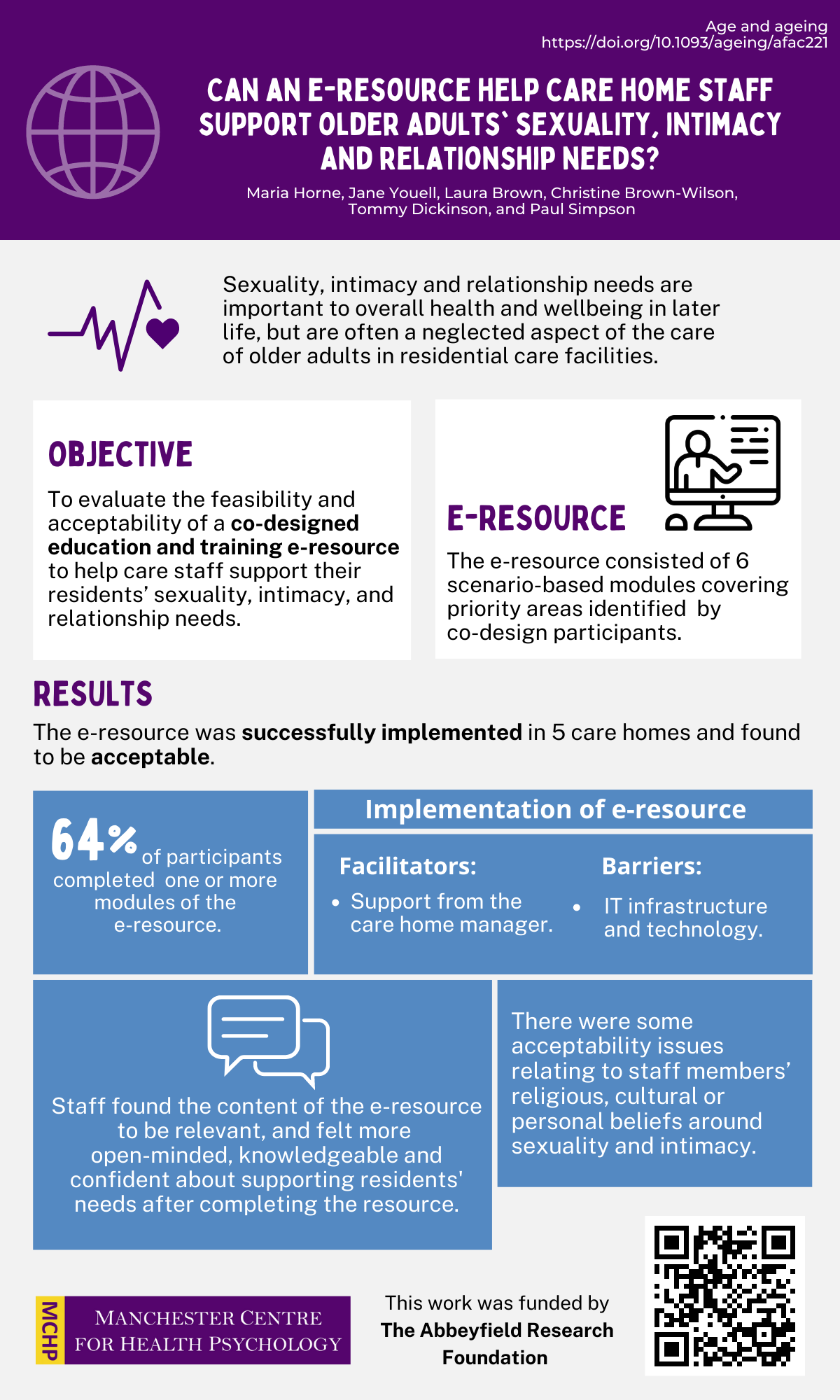
How can Health Psychology Research make a Difference to the Lives of Care Home Residents?
My first full-time job after leaving school was as care assistant in a care home for older adults. Whilst the work was physically and mentally challenging, I also found it immensely rewarding, and I loved learning about the lives of the people I was caring for. I continued working as a care assistant whist studying for my undergraduate degree in Psychology. And, in doing so, I began to see the huge potential that psychology could offer to people living and working in care homes.
Making a difference
In my current role as an academic researcher in psychology, I now have the opportunity to conduct research that can make a positive difference to the lives of care home residents. For instance, I have done work that highlights the importance that many care home residents place on intimate relationships, and how care home staff can support residents to meet their sexuality, intimacy, and relationship needs. My work has also shown how care home residents often struggle to maintain a sense of purpose in life, and has identified potential strategies that could help with this.
The Secrets to Success
Over the years, I have learnt some important lessons about how to make care homes research as good as it can be. First, it is absolutely essential that we, as psychologists, collaborate with people from different disciplines. Psychology is only one piece of the jigsaw puzzle. We need to work alongside academic and clinical staff who have expertise and experience that can complement our own, such as nurses, sociologists, and gerontologists.
Second, we need to communicate our research findings to a diverse range of people. Academics tend to be very good at talking to other academics. However, we are not always so good at communicating to the people who most need to know about our work, such as the people who live and work in care homes, or those who commission or evaluate care home services. These are skills that we need to develop if we really want our work to make a difference.
Finally, and most importantly, it is absolutely essential that we involve care home staff, residents, and their family members in every stage of the work that we do. The most meaningful care homes research will reflect the topics and issues that are important to the people who live and work there. So, as researchers, we need to listen, and respond, to the issues that care homes want to address. Staff, residents, and family members are also the best people to advise on what will – and what will not – work, in care home settings. So involving them in the design and application of the work is a key ingredient for success.
Infographic: What makes life purposeful to older care home residents?
Learn about what makes life purposeful to older care home residents and strategies to maintain sense of purpose.
Working Together
One way that we can be more effective as care homes researchers is by working together to share our knowledge, learning, and expertise. This is one of the reasons that I co-founded the British Society of Gerontology’s Care Homes Research Special Interest Group in 2019. We offer a variety of opportunities (including online symposia, regular news bulletins, and social media outlets) to help improve care homes research. The group is free to join, and is open to anyone with an interest in care homes research. So please do join us if you share our passion for making a difference to the lives of care home residents!
About the Author
Dr Laura J.E. Brown is a Senior Lecturer in Psychology at the University of Manchester. To find out more about her work, you can email her at laura.brown@manchester.ac.uk








0 Comments